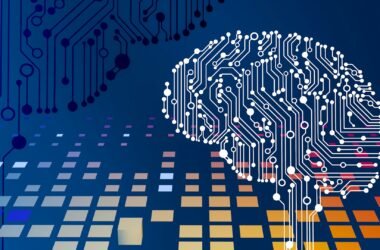In the ever-evolving world of technology, quantum computing stands as a game-changer. Unlike classical computers that rely on binary (0s and 1s), quantum computers leverage the principles of quantum mechanics to process information in entirely new ways. This could lead to breakthroughs in AI, cryptography, drug discovery, and complex simulations, transforming industries at an unprecedented scale.
What Is Quantum Computing?
Quantum computing is based on the principles of quantum mechanics, the physics that governs subatomic particles. It uses qubits (quantum bits) instead of traditional bits, enabling it to process massive amounts of data simultaneously.
Key Quantum Concepts:
- Superposition: A qubit can exist in multiple states at once (both 0 and 1), exponentially increasing computing power.
- Entanglement: When qubits become linked, changes in one instantly affect the other, enabling ultra-fast parallel processing.
- Quantum Interference: The ability to manipulate quantum states to optimize computations.
How Quantum Computers Work
Unlike classical computers that process one calculation at a time, quantum computers use quantum gates and coherence to perform complex operations in parallel.
Classical vs. Quantum Computing
| Feature | Classical Computing | Quantum Computing |
|---|---|---|
| Processing Unit | Bits (0s & 1s) | Qubits (Superposition) |
| Computation Type | Sequential | Parallel |
| Processing Speed | Limited by transistors | Exponentially faster |
| Security | Vulnerable to brute-force attacks | Quantum cryptography offers ultra-security |
Technologies Behind Quantum Computing
Quantum computers require specialized environments due to their extreme sensitivity. Some of the technologies include:
Superconducting Qubits (Used by IBM, Google, and Rigetti)
Trapped Ions (Used by IonQ and Honeywell)
Topological Qubits (Explored by Microsoft)
Real-World Applications of Quantum Computing
Quantum computing isn’t just theoretical—it has real-world applications that could revolutionize multiple industries.
1. Artificial Intelligence & Machine Learning
Quantum computers could significantly improve AI models by optimizing large datasets and improving deep learning algorithms. Google’s Quantum AI lab is already working on quantum-enhanced AI.
2. Cybersecurity & Cryptography
Quantum computing poses a threat to traditional encryption since it can break RSA and other cryptographic methods. However, it also enables quantum cryptography, which offers unbreakable security via quantum key distribution (QKD).
3. Drug Discovery & Healthcare
Pharmaceutical companies can use quantum simulations to accelerate drug discovery by modeling molecules at an atomic level. This could lead to faster cures for diseases like cancer and Alzheimer’s.
4. Financial Modeling & Risk Analysis
Banks and hedge funds can use quantum computing to optimize investment strategies and conduct high-speed risk analysis, providing better financial predictions.
5. Climate & Materials Science
Quantum simulations help scientists design new materials for batteries, superconductors, and energy-efficient technologies. This could revolutionize clean energy and environmental solutions.
Challenges & Limitations of Quantum Computing
While quantum computing is promising, it still faces several challenges:
Error Rates & Decoherence: Qubits are highly unstable and prone to errors.
Scalability Issues: Current quantum systems have limited qubits, restricting their computational power.
Extreme Conditions Required: Quantum computers require near-absolute zero temperatures to function.
High Cost: Quantum computing technology is expensive and requires specialized infrastructure.
The Race for Quantum Supremacy
Companies like Google, IBM, Microsoft, and startups like D-Wave and IonQ are competing to achieve quantum supremacy—the point at which quantum computers outperform the most powerful classical supercomputers.
Future of Quantum Computing
Quantum computing is still in its early stages, but advancements are rapidly occurring. In the next decade, we may see:
Quantum-Enhanced AI: More powerful AI models and machine learning breakthroughs.
Quantum Internet: A new form of ultra-secure communication using quantum encryption.
Commercial Quantum Cloud Computing: Quantum-powered cloud services available to businesses.
Practical Quantum Processors: More stable and error-free quantum processors for real-world use.
Will Quantum Computers Replace Classical Computers?
Not entirely. While quantum computers excel at specific complex calculations, classical computers will remain essential for everyday computing tasks. Instead, a hybrid computing model—where quantum and classical computers work together—is the likely future.
Quantum computing is more than just a technological leap—it’s a paradigm shift in how we process information. From revolutionizing AI to breaking encryption and accelerating scientific discoveries, its impact will be far-reaching.
As research continues and tech giants push the boundaries, quantum computing is set to become one of the defining technologies of the 21st century.
What are your thoughts on the future of quantum computing? Let us know in the comments!









